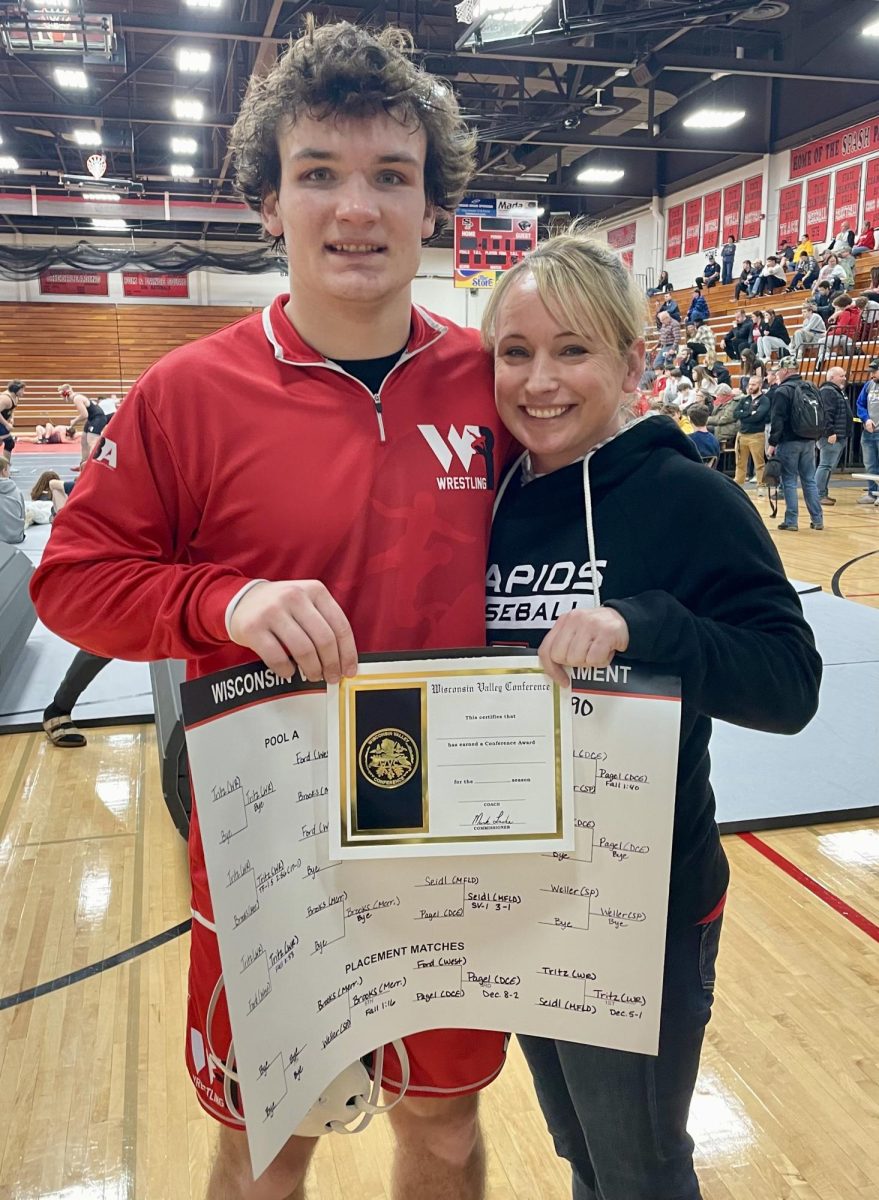Trina Wolosek is a professor for Lakeland University’s Kellett program where the realm of online teaching is a balanced act of incorporating various methods to build connections with students in a virtual classroom. Wolosek shares her educational background and experiences as an online educator as well as her vision for the future of digital learning.
Wolosek’s educational journey began during her undergraduate years at the University of Wisconsin-La Crosse. Initially drawn to a career in public relations and marketing, she double majored in Communication Studies/Public Relations and Psychology. However, her path took an unexpected turn when she enrolled at UW-Madison for her master’s degree in Journalism and Mass Communication. That was where she discovered her passion for teaching while serving as a teaching assistant for several courses, such as Public Speaking, Intercultural Communication, and Quantitative Research Methodology.
What led Wolosek to Lakeland University was her desire to balance professional pursuits with familial responsibilities while living in Central Wisconsin, and the online Kellett program allowed her to do that. “It was a perfect match to continue teaching without relocating my family,” she shared. Along with her online endeavors for Lakeland’s Kellett program, she also works for the Wisconsin Rapids School District and Mid State Technical College.
Teaching online also allows Wolosek to balance raising her three children and keeping her other work positions, in addition to connecting with her online students through sharing her passions and experiences. Reflecting on these experiences, Wolosek expresses her appreciation regarding the rewards that teaching in an online environment has brought to her life. “Many of my former students have expressed abundantly positive feedback regarding their experience in my class,” she remarks, “and that is something I absolutely treasure.”
Nonetheless, she acknowledges the challenges that exist in online learning, particularly how in-person teaching allows for face-to-face interactions and verbal instructions, which is difficult to achieve in a virtual setting. To overcome these barriers, Wolosek tailored her teaching style to accommodate the different learning styles of her students. She explains, “I try to incorporate videos, engaging discussion boards, peer-reviewed partner work, and assignments that give students the opportunity to apply their skills in an active, hands-on fashion.” Through these methods, she aims to improve the learning experience for her students and monitors what her students find most impactful to improve the course each semester through their feedback.
As online education continues to grow, Wolosek displays positive sentiments about its future. From a global perspective, she explained how digital learning eliminates physical boundaries, time constraints, and personal barriers as she experienced teaching students from other countries who have diverse life experiences online. “Kellett empowers its instructors through professional development and promotes multimodal teaching methods,” Wolosek said. “So, I believe online education will only continue to grow, improve, and make education more accessible.”
Recognizing the diverse backgrounds of her students, many of whom also balance full-time jobs and familial responsibilities, she emphasized the importance of how valuable real-world experiences can add significant value to online discussions. For those stepping into online learning, Wolosek offers valuable advice: “Showcase your time-management skills. Establish a routine and set time aside to complete readings and assignments just as you would for in-person class time.”



